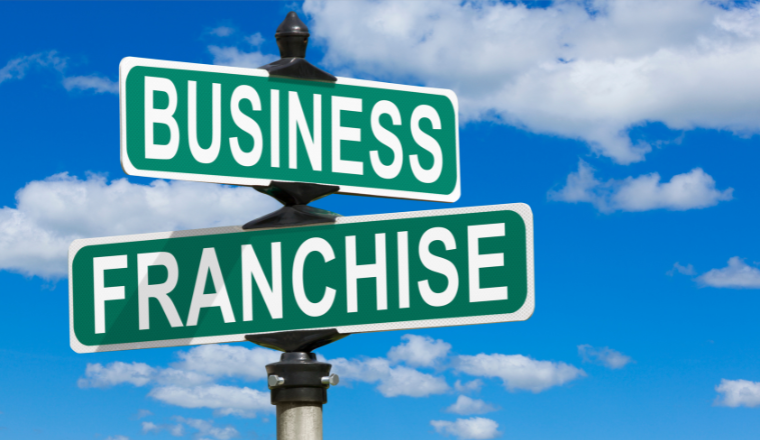Global Commercialization: Understanding Intellectual Property for Business

Table of Contents
Whether a new business is a multinational corporation or an SME, one of their biggest challenges is recognizing the demand that generates revenue for them. Hence, it is not uncommon for profit-seeking businesses to be innovative in a technological era that is changing at breakneck speed. Whether it is in their product, work model, or identity, any innovation that meets demand will be profitable. When this occurs, understanding intellectual property is crucial for small or big businesses and registering their innovation as its IP Asset to protect such intangible assets that give them a competitive advantage against their competitors.
In a nutshell: Identifying your intellectual properties
Intellectual properties are described as the innovation of the mind. As simple as this may sound, this is just the tip of a mammoth iceberg. These innovations and creations vary in nature, such as technological inventions, artistic endeavors, authentic works of creative literature, the way a product works, be it functional or ornamental, or original logos and brand design.
In general, anything that can be utilized for commercial purposes and serves to meet the demand of willing consumers can be categorized as intellectual property. The intangibility of intellectual properties means that they are commercial commodities, but are intangible by nature, such as a software application. the likeness of a celebrity or brand name.
As a Business, How can you protect Intellectual Property?
A rule of thumb: As opposed to any wing of universal law, intellectual property law is standardized on a global scale. They are protected by the laws of a sovereign country and the most common forms of IP protection include the following:
- Patents: This is when the innovator is granted a licensing right by the appropriate patenting authority. This right stipulates that the innovator holds exclusive rights on such invention for a given period and of their product or service. This results in other companies being barred from mimicking the innovator’s products until the validity period lapses.
- Copyright: This refers to the right of owning intellectual property. It specifically refers to the right to legally copy the original intellectual property. In general, this means that the original creators of the product can authorize who can and cannot reproduce their work, usually with a fee. Some examples of copyright include art, literary work, music, etc.
- Trademarks: It is the licensing and legal protection of a logo, phrase, slogan, word, insignia, or a combination of these elements that attribute to a specific, usually recognizable product or service. Trademarks are used to differentiate a product both legally and commercially from ones that are similar to it, such as shoes. They are also used to protect a company’s ownership of a brand.
- Trade Secrets: These are intellectual properties that are licensed and protected to be confidential to the They are commonly characterized as information involving how a business manufactures its products or operates. Due to the sensitivity of this information, it is believed that trade secrets provide businesses with a competitive advantage over their competition in the market. Furthermore, apart from being commercially valuable which can result in its owners offering it for sale, this type of intellectual property is usually disclosed to a specific number of individuals or groups. Some examples of Trade Secrets are the Coca-Cola recipe.
- Industrial Design: An industrial design right is a type of intellectual property right that protects the design aesthetic of non-utilitarian goods. An industrial design is the construction of a three- or two-dimensional shape, configuration, or combination of both of them. Some examples of Industrial Design are the Mini Cooper and the Coca-Cola Contour Bottle.
Anything that can be utilized for commercial purposes and serves to meet the demand of willing consumers can be categorized as Intellectual Property.
Why is Intellectual Property vital for the sustainable longevity of a SMEs’ business lifecycle?
Just like multinational enterprises, SMEs benefit greatly from protecting their intellectual property.
Expert Insight: According to Hongbing Chen, a trademark specialist working for the WIPO (World Intellectual Property Organization), branding and trademarks are an integral part of developing a strong business strategy. Furthermore, he explains that today, SMEs are faced with unique challenges when it comes to forming their commercial reputation in the market. Additionally, he stated that to counteract these challenges, small businesses can take advantage of different types of IP rights, particularly collective marks.
(Hongbing Chen, Trademark Specialist, WIPO, ‘Intellectual Property and SMEs: How to Take your Ideas to market accessed 7 July 2022)
But what are collective marks? Simply put, a collective mark is short for collective trademarks and is eminently described as a form of trademark utilized by an organization. The members of the organization use collective marks to identify their products that are distinct in characteristics. This may include the quality of the products themselves or even geographical origins.
Mr. Chen continues to explain that SMEs should have a more deliberate outlook when devising and identifying their intellectual property. This is due to the modern nature of the digital economy and internet marketing, where it is common for businesses to interact directly with target customers. Hence. They are prompted to ensure that they can distinguish themselves from their competitors.
What unique advantages does IP protection offer Businesses?
Legal Certainty
A challenging aspect that comes with commercialized business ideas is that some are not fully legally protected if their IP has not been identified. Due to this, businesses protect their commercial ideas in the form of IPs as well as yielding other benefits such as:
- Recouping the costs incurred from creating their intangible assets
- The exploitation of these intangible assets
- Enforcing the protection of their idea via court customs and through the appropriate authorities
Exercising The Legal Right to Exclude
The current market scope is developing fast in a technological aspect. As a result, the byproduct should ultimately yield results such as an increase in customer demand. Due to this, the digital economy allows businesses to interact with their target customers directly. Additionally, businesses that have taken precedence in protecting their intellectual properties, have the advantage of distinguishing themselves from their competitors to their customers. These include unique aspects such as their cost, quality, and product value; as well as technical characteristics such as the product’s manufacturing methods and specifications.
Strengthening And Enforcing Market Position While Building Credible Commercial Reputation
Intellectual property for businesses can be utilized as trademarks, geographical indications, and domain names to establish a positive customer association with their products. However, they can also establish a positive reputation by advertising their willingness and ability to innovate as a selling point.
This point plays a vital role when an opportunity for mergers, acquisitions, and even investment opportunities comes along. They can do this by exercising the protection of features such as patents, utility models, and industrial designs. This can contribute to reinforcing the company’s image and its ideology towards promoting innovation and the business as a whole.
Streaming revenue and obtaining profitability from your Intellectual Property
Like tangible goods, a company can use its intangible goods which have been protected as intellectual property or as a commodity to emit profit and yield a return on investment in areas that are usually overlooked, such as:
- Sell or ‘loan’ the rights to their respective intellectual property
- License the whole or part of the right for a fee, for a certain period of time
- Franchise any or some of its intellectual assets pertaining to its established subsidiaries
Lucrative Strategic Partnership Opportunities and Bolstering B2B Cooperation
When a business establishes a diversified IP portfolio while its brand is regarded as profitable in the market, it can ultimately attract business prospects wishing to form a partnership with them. These collaborations can come in various forms such as:
- Licensing agreements
- Research and Development Agreements
- Joint ventures.
Overall, joint ventures provide businesses with the opportunities to expand into new markets, as well as the convenience to share new technologies and establish strategic partnerships within their relevant market., One other benefit of such a relationship is legal protection from the misuse of their assets in these jurisdictions.
Selling and Licensing Intellectual Properties
Like tangible goods, intellectual property can be sold and bought. However, unlike physical properties, some complexities are introduced when such a transaction occurs.
These complications mostly correspond with ascertaining the value of intangible goods during a transaction of a fiscal nature. The valuation of a business’s IP portfolio can initially be determined by its respective market and cost-based estimates, including external factors such as public perception, reputation, and the goodwill associated with the brand or product.
Expert Insight: Expert insight can be highly subjective and determining the consistent value of a brand can be uncertain. Consumer perception can also change quickly due to several variants in the marketplace and public relations. Ultimately, businesses wishing to sell or purchase intellectual properties such as a brand, copyright, and so on, are advised to seek the counsel of an experienced IP attorney to minimize complications during the transaction.


Why do Businesses protect and License their Intellectual Property?
- Due to the shifting nature of an IP’s value in the market. It is simple to conclude that the price of the brand will vary vastly from the time it is registered to its present state. The company may find success and expand, or the product may be deemed inferior and sell poorly in the market or even socio-economic events can occur that would either galvanize or diminish the public’s perception of the brand.
- Due to the fluctuating nature of IP values, many IP holders choose to license their brands. This method is perceived to be a more viable alternative to selling, as there is potential for the brand to accrue ongoing-profit opportunities if its value increases.
Hence, licensing is considered to be safer than selling the IP as the owner maintains rights to the IP. For instance, patent holders who choose to license their innovation will allow ownership retention while concurrently, receiving other forms of profits such as royalty payments as well as benefiting from future sales of the product.
What is Franchising?
Franchising is a form of licensing an owner’s intellectual property for usage by a 2nd or 3rd party business. It is viewed as one of the most efficient methods to commercially exploit intellectual property while simultaneously protecting and enforcing it.
There are two main types of franchising:
- Product and Trademark: This is when the franchisee utilizes the franchisor’s brand, name, and product recognition to sell the franchisor’s product. This type of franchising is common among motor vehicle dealers, soft drink bottlers, and fuel service stations.
- Business Format Franchising: This is when the franchisee capitalizes on the franchisor’s entire business idea, including their name, trademark, positive public perception, trade secrets, etc. This type of franchising is common among fast-food chains.
In conclusion, the expanding digital economy and internet commerce have seen an increase in the interaction between businesses and their customers. . As a result, regardless of the company’s size, understanding intellectual property and applying for IP protection has become an integral part of businesses seeking to succeed in today’s market. In addition to the protection of the company’s authentic commercial ideas, applying for IP can also bring profitable intangible assets and business opportunities. These opportunities enable businesses to expand their market size and galvanize customer loyalty.
Abou Naja Intellectual Property is committed to elevating and supporting all businesses looking to protect their IP, irrespective of how long they’ve been around in the global or local market. As we have advised before, as a business owner, we urge you to seek the advice of an experienced IP attorney to bypass expensive IP complications, while steadily bolstering your IP portfolio.
Get in touch with us at [email protected], where our IP experts would happily oblige to a cost-free and actionable IP consultation.
Frequently Asked Questions
What is intellectual property?
Intellectual property refers to innovations of the mind, encompassing various creations such as technological inventions, artistic works, literature, and unique product designs.
How can businesses protect intellectual property?
Businesses can protect intellectual property through legal mechanisms such as patents, copyrights, trademarks, trade secrets, and industrial design rights.
Why is intellectual property vital for businesses, especially SMEs?
Intellectual property provides legal certainty, the right to exclude, strengthens market position, builds a credible reputation, and offers revenue streams through licensing and selling intangible assets.
What are the advantages of IP protection for SMEs?
SMEs benefit from IP protection by establishing a strong business strategy, distinguishing themselves from competitors, and attracting partnerships through features like collective marks.
How can businesses exercise their legal right to exclude?
By protecting their intellectual properties, businesses can legally exclude others from mimicking their products, reinforcing their market position and customer loyalty.
Can intellectual property be sold or licensed?
Yes, intellectual property can be sold or licensed, providing opportunities for revenue generation, ongoing-profit opportunities, and strategic partnerships.
What is franchising in the context of intellectual property?
Franchising involves licensing an owner's intellectual property, allowing a second or third-party business to utilize the brand, name, and product recognition for commercial exploitation.
How can businesses determine the value of their intellectual property?
Determining the value of intellectual property involves market and cost-based estimates, public perception, reputation, and goodwill. Seeking the advice of an experienced IP attorney is recommended.
Why do businesses choose to license their intellectual property instead of selling?
Licensing offers ongoing-profit opportunities, and IP owners maintain rights while benefiting from royalty payments and future sales, providing a safer alternative to selling.
How does intellectual property contribute to strengthening market position?
Intellectual property, when protected and enforced, allows businesses to distinguish themselves from competitors based on unique features, cost, quality, and product value.






